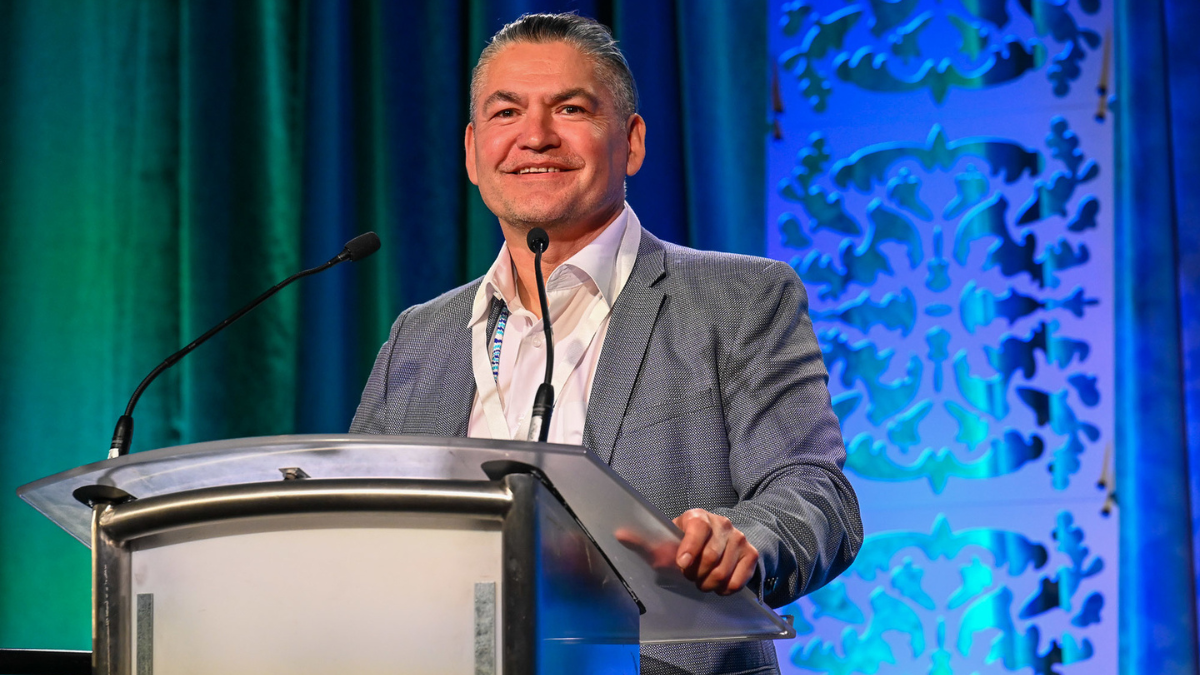Canada’s lone ‘mega-foundation’ gets court approval for early sale of billions in Mastercard stock. Could it boost Indigenous-focused impact investing?
Why It Matters
The Mastercard Foundation’s staggering size means even a modest change to its investment strategy could have a big impact both domestically and abroad.

An Ontario court has approved a request by the Mastercard Foundation, Canada’s only mega-foundation, to sell billions of dollars worth of Mastercard Inc. stock more than three years earlier than initially planned — a move that could impact how the foundation invests domestically and internationally according to some experts.
One of the world’s largest foundations with assets of US$37 billion, it was established during Mastercard Incorporated’s initial public offering in 2006, receiving 10 per cent of the company’s equity, then worth about US$500 million.
As part of the donation, the foundation agreed it wouldn’t sell any corporate stock before May 1, 2027, other than to satisfy Canada’s disbursement quota — the annual amount a foundation must spend on grants and other charitable projects — and to pay its operating expenses.
This unusual arrangement resulted in dramatic growth in the foundation’s assets over the past 16 years as Mastercard’s value surged.
It was that same dramatic growth that prompted the foundation to seek a court order accelerating the diversification of its investments from the Ontario Public Guardian and Trustee this June, according to Wariko Waita, Mastercard Foundation’s senior director of communications.
“The size of the portfolio today, which could not have been contemplated at inception, means that a more diversified approach is required,” she said, in an email to Future of Good.
The Mastercard Foundation will now begin selling the bulk of its Mastercard shares on January 1, 2024, potentially freeing up billions of investment dollars.
An opportunity for impact investing?
Waita didn’t share how the foundation will approach its future investment strategy, but said the organization plans to hire a chief investment officer to develop an “appropriate” diversification plan.
Sylvain Lefèvre, a professor at the University of Quebec in Montreal who has studied the Mastercard Foundation, said the court’s decision may pave the way for a large-scale impact investment strategy on the African content, where the foundation has focused its granting.
“We can assume the foundation wishes to act not only through the donations it grants, but also through the investments it makes,” he said in French. If it chooses to do so, Mastercard will join a growing number of Canadian foundations aligning their investments with their mission, he added.
Jeffrey Cyr, managing partner of Indigenous-led venture capital firm Raven Indigenous Capital Partners, said he’s hopeful the foundation will build upon recent philanthropic support for Indigenous communities in Canada by investing in Indigenous-led entrepreneurs and domestic impact investment funds.
Cyr, whose firm raised a $100 million Indigenous-focused venture fund in January 2023, said there remains a “massive gap” in culturally-appropriate capital in Canada for Indigenous entrepreneurship, innovation and social finance — particularly for entrepreneurs seeking more than “seed-stage” financing, but less than what’s required for large-scale infrastructure projects.
“What I think we need is equity-based investments where you start taking risk and you have growth,” he said.
“That’s where someone like Mastercard could be a game-changer.”
Shannin Metatawabin, CEO of the National Aboriginal Capital Corporations Association, a network of over 50 Indigenous financial institutions, echoed Cyr’s hope and pointed to an Assembly of First Nations report that found Indigenous communities in Canada face a $349.2 billion infrastructure gap when it comes to housing, education, connectivity and roads.
Metatawabin said that while Indigenous communities rightly look to government to fulfill its obligations, there’s also a role for corporate foundations to play by investing alongside government in funds like the National Aboriginal Capital Corporations Association’s $153 million Indigenous Growth Fund.
The time is right for co-investment, Cyr said.
In May, the federal government announced the long-awaited $755 million Social Finance Fund, which aims to raise $2 in private capital for every $1 invested by government in socially-focused initiatives.
By selling its Mastercard stock and investing in Indigenous-focused impact funds alongside the federal government, the Mastercard Foundation could have a “system transformative” impact,” Cyr said.

Long-term impacts?
Waita said the change to the foundation’s deed of gift will have “no bearing on the Foundation’s commitment to meeting its disbursement quota” in the coming years.
The foundation came under fire in 2021 after an investigation by The Logic revealed it had spent less than the federally-mandated minimum required by Canadian foundations in 2019. However, the foundation was legally entitled to underspend as long as it adhered to a 15-year-rolling-average, thanks to an agreement with the federal government that expired in December 2021.
“The Foundation will continue to meet its disbursement quota obligations and has consistently raised its charitable spending year on year,” Waita said. “We have every intention of building on this trend as we pursue even greater scale and impact in Africa and Canada.”
In 2021, the foundation made its largest-ever pledge: US$1.3 billion for COVID-19 vaccinations and vaccination infrastructure on the African continent. It was followed in October 2022, by a pledge of an additional $500 million to support Indigenous education, employment and entrepreneurship initiatives across Canada.
When asked if the foundation’s existing grantees domestically or abroad should expect any changes to the support they receive, Waita said the foundation typically engages in long-term, multi-year partnerships aimed at systemic transformation.
“We fully expect to deepen our work with current and future partners over the coming years,” she said.

